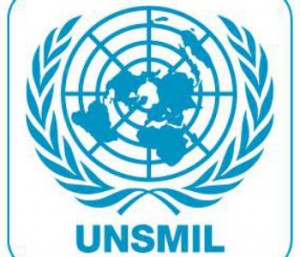By Hadi Fornaji.

Tripoli, 8 June 2015:
The fourth draft of the political accord, which . . .[restrict]UNSML chief Bernardino Leon presented to the rival Dialogue parties this evening at their latest meeting in Morocco, contains changes which appear to move power away from the elected House of Representatives and almost completely ignores the role on the Constitutional Drafting Assembly in Beida.
A key change comes in Article 19 where the State Council, which in the last draft was purely consultative, is given the power to express “binding opinions with a qualified majority” on legislation that the new Government of National Accord intends to present to the HoR. This would suggest a likely conflict in that laws the government would present to the HoR could well come with the imprimatur of the State Council.
In the last draft, the creation of the almost exclusively State Council was seen as a sop to the rump of the old parliament, the General National Congress. The new document is quite specific in that Article 23 provides for the GNC to have 90 of the 120 members. The remainder, as in the previous draft, would be chosen from personalities trusted and respected in the community.
Article 24, which is not well-worded, appears to commit the HoR and the State Council by 24 October this year, to form a joint committee to propose draft laws “for completing the transitional period” as well as legislation for the referendum on the constitution and the general election that would follow. This article provides for the Government of National Accord to then submit the laws “for endorsement” to the HoR.
The draft maintains the unwieldy-named five-member Presidency Council for the Council of ministers, in which the prime minister and his or her two deputies (the draft does not accept the possibility that the PM could be female) would be able to overrule objections from the other two ministerial members.
The new draft also accords a not-unimportant role the ‘Libyan Political Dialogue’, the members of which it does not spell out. To this body has been allocated a role in the appointment and removal of the heads of six key state bodies, the Central Bank, the Audit Bureau, proposed new Administrative Oversight and Anti-corruption Authorities as well as the High National Election Commission and the Public Prosecutor’s office.
It is also probably significant that unlike in Draft III, there is only a single mention of the Constitutional Drafting Assembly which has been working out of Beida to draw up the core document for the new Libya. Instead there are various mentions of the ‘Constitutional Declaration’ produced by the National Transitional Council of August 2011, “as amended by this agreement”.
The new draft says that ministers must be Libyan citizens and cannot hold dual nationality. It also says that no minister can be married to a non-Libyan woman. It does not however say if a female Libyan minister can be married to non-Libyan man.
The HoR itself would appear to be in line for some restructuring. Article 16 envisages that once it had been joined by those boycotting members of the parliament “who wish to do so”, the parliament would consider its current location in Tobruk, (the GNC law that brought it into being envisaged it would be in Benghazi), its procedures and the formation of its committees and also review the decisions that it has already made. To this end, UNSMIL committed itself in the following article to “urgent” consultations with the boycotting HoR members.








